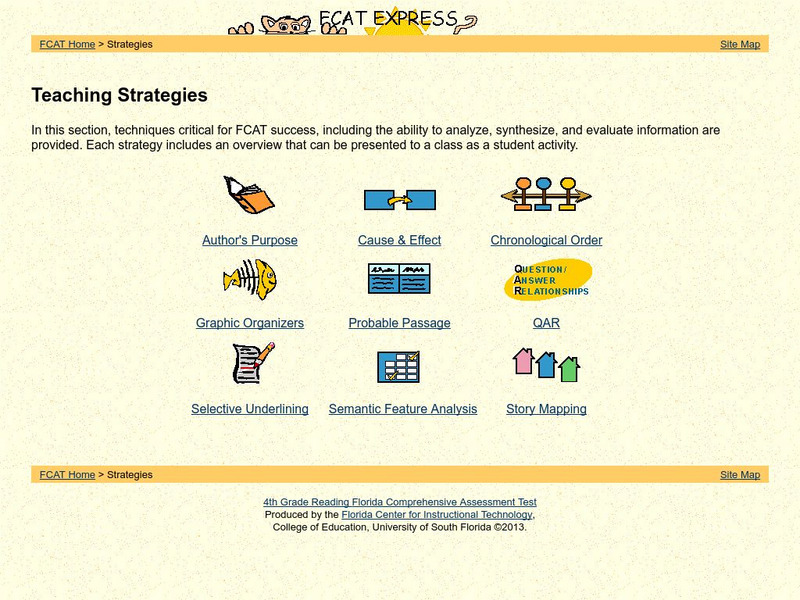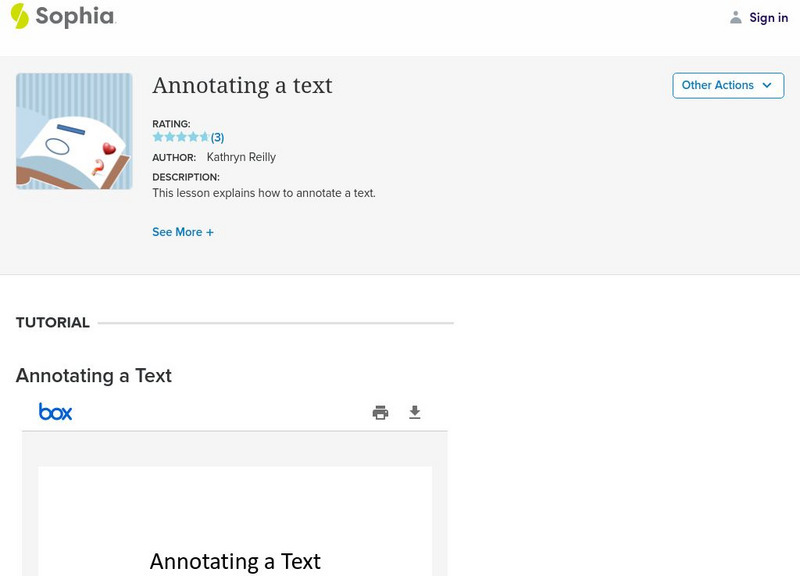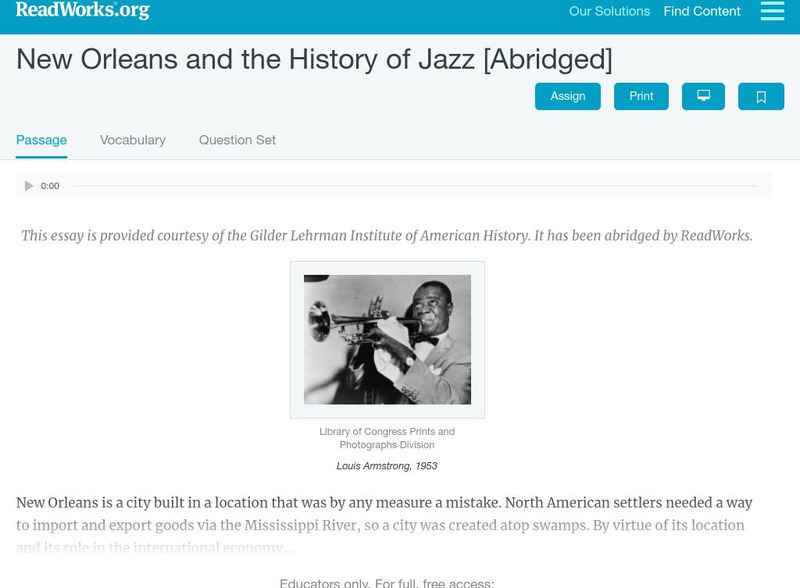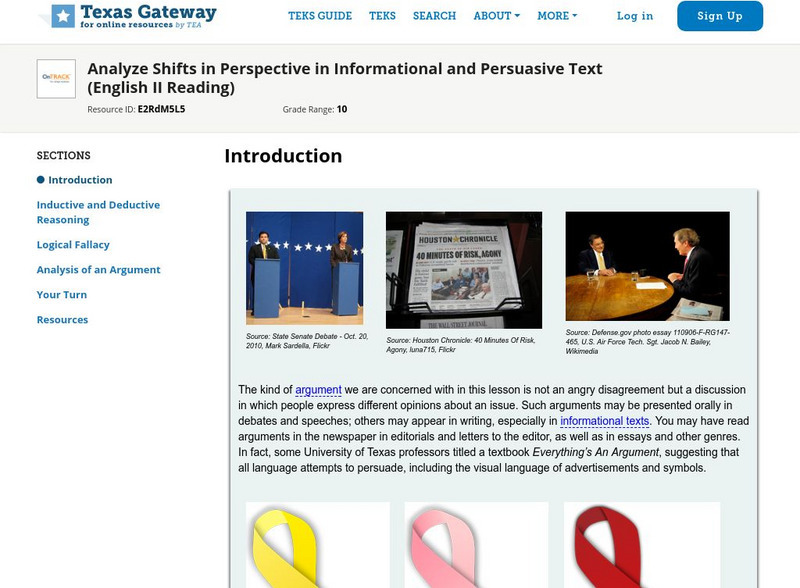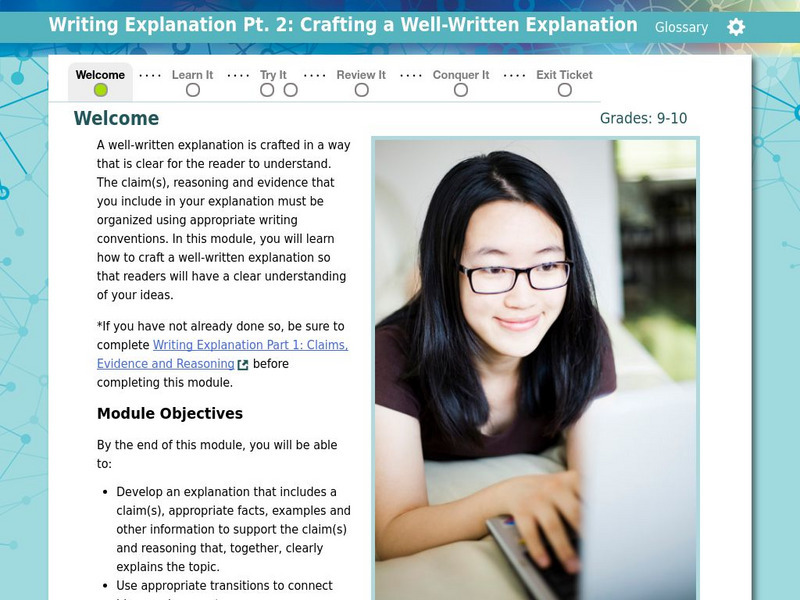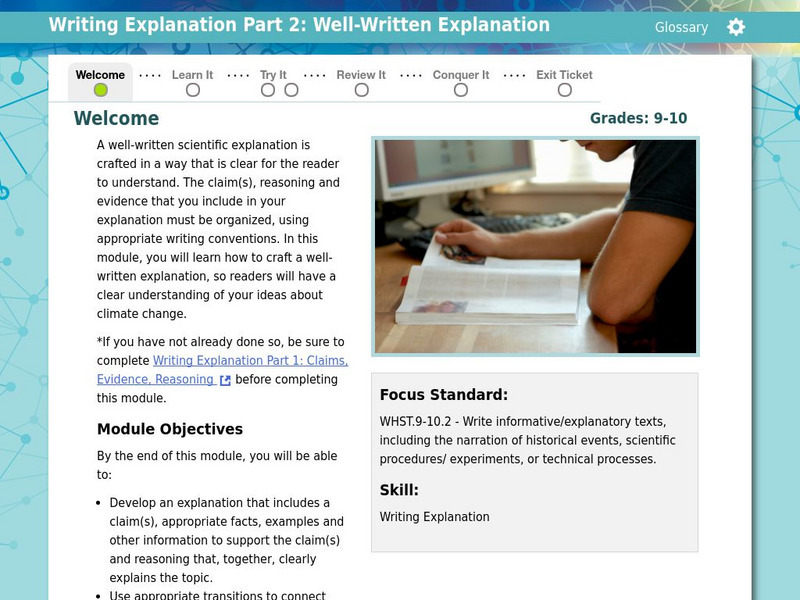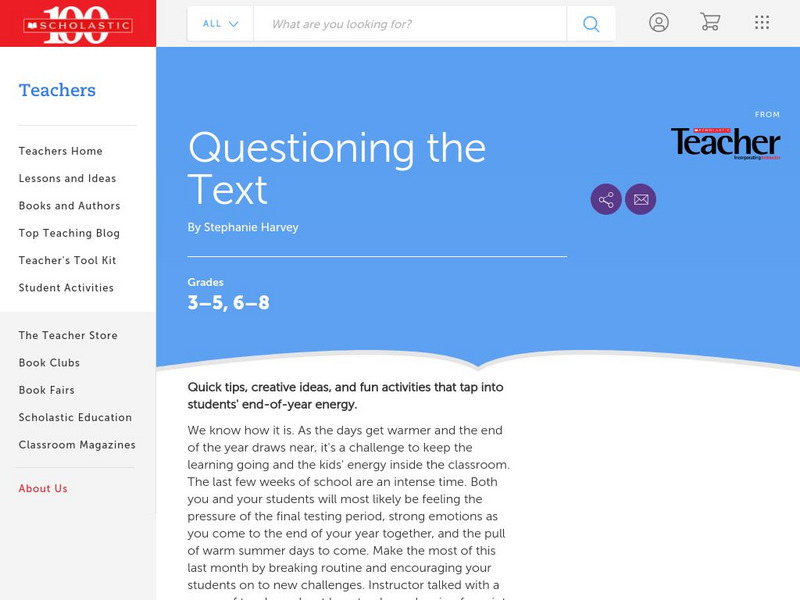National Endowment for the Humanities
Shakespeare's Macbeth: Fear and the Motives of Evil
High schoolers use an online search engine (or a printed concordance) to locate passages that highlight Macbeth's response to fear and his descent into evil. They analyze the motives of Macbeth's increasingly desperate and evil actions.
National Endowment for the Humanities
Edgar Allan Poe, Ambrose Bierce, and the Unreliable Biographers
High schoolers research biographical facts about Edgar Allan Poe and Ambrose Bierce and complete literary analysis activities. In this biographical lesson plan, students research basic biographical facts about Poe and Bierce. High...
Other
Into the Book: Inferring: Using the Clues
Watch an introductory tutorial about inferring during reading, and then choose from several different types of texts to practice using the skill.
ReadWriteThink
Read Write Think: Using Thieves to Preview Nonfiction Texts
Contains plans for three lessons that introduce a nonfiction prereading strategy with the acronym THIEVES, which stands for Title, Headings, Introduction, Every first sentence, Visuals and vocabulary, End Questions, and Summary. In...
Other
Peoples Education: Make Inferences in Science [Pdf]
This online textbook selection focuses on how scientists make inferences from evidence. Students are given a reading passage about underwater exploration and are asked to make inferences based on the text. The passage is followed by...
University of South Florida
Fcat Reading Grade 4: Teaching Strategies
This is a great resource that concentrates strategies and student activities in one place in an easy to use format, and can be navigated easily. Find great examples of probable passage, selective underlining, and semantic feature...
Sophia Learning
Sophia: Conclusions
This lesson focuses on writing conclusions; it lists and defines the parts of a conclusion: thesis recap, blueprint recap, and clincher and provides a sample of an effective conclusion with the parts labeled. It also offers a slideshow...
Sophia Learning
Sophia: Annotating Text
This slideshow focuses on the reading strategy, annotating text. It defines the term and purpose, lists types of annotation, explains what to annotate, and suggests how readers develop their own method.
Read Works
Read Works: Passages:"new Orleans and the History of Jazz "By Loren Schoenberg
[Free Registration/Login Required] This article "New Orleans and the History of Jazz "by LorenSchoenberg focuses on the beginnings of New Orleans and its history of Jazz. A comprehension question set follows the passage. 11-12.3 Text...
Beacon Learning Center
Beacon Learning Center: Trailblazing Conclusions
This tutorial focuses on conclusions for expository writing. It discusses the purpose of conclusions, what should be included, and ways to conclude.
Online Writing Lab at Purdue University
Purdue University Owl: Body Paragraphs
This Purdue University OWL (Online Writing Lab) provides information related to writing body paragraphs for argumentative essays.
Texas Education Agency
Texas Gateway: Annotate and Analyze a Paired Passage: Practice 2
[Accessible by TX Educators. Free Registration/Login Required] In this lesson, students will read and annotate a pair of texts to make inferences, draw conclusions, and synthesize ideas and details using textual evidence.
British Council
British Council: Essays: Structure 2
This website provides tips to writing which develops an argument. When writing an essay, show that the writer can construct a coherent argument and employ critical thinking skills, as well as support an argument with evidence.
Other
Warren County Schools: Citing Textual Evidence
Well-organized and in-depth instructional activity on citing textual evidence and understanding inferences. Many examples are included, as well as exercises for the students to practice what they have learned. [PDF]
Thinkport Education
Thinkport: Citing Textual Evidence: Changing Oceans
Learn how to cite evidence to support ideas presented in a science article about oceans.
Texas Education Agency
Texas Gateway: Analyze Shifts in Perspective in Informational & Persuasive Text
[Accessible by TX Educators. Free Registration/Login Required] In this lesson, you will read informational texts and identify varying perspectives in different arguments on the same topic. You will also analyze the reasoning and the...
Thinkport Education
Thinkport: Writing Explanation Pt. 2: Crafting a Well Written Explanation
In this module, students will write an explanation about climate change based on the claims, evidence and reasoning they identified in the Writing Explanation Part 1: Claims, Evidence and Reasoning.
Thinkport Education
Thinkport: Writing Explanation Part 3: Building an Argument
In this module, students will explore how claims, counterclaims, evidence and reasoning are used to write an effective argument. Students will read texts that discuss the climate change debate.
Thinkport Education
Thinkport: Writing Explanation Part 2: Well Written Explanation
In this module, students will write an explanation based on the claims, evidence and reasoning about climate change that they identified in Writing Explanation Part 1: Claims, Evidence, Reasoning.
Thinkport Education
Thinkport: Read Like This: Using Informational Text Strategies
In this module practice working with informational text.
Curated OER
Neh: Edsit Ement: Walt Whitman's Notebooks and Poetry: The Sweep of the Universe
For this lesson plan, students will consider "Walt Whitman's Notebooks and Poetry: The Sweep of the Universe." The plan includes worksheets and other student materials that can be found under the resource tab.
AdLit
Ad lit.org: Classroom Strategies: Inferential Reading
Teaching students to "read influentially" helps them learn how to read more strategically. This technique is derived from the teaching model that learners develop knowledge via the process of interpreting new information in light of past...
Scholastic
Scholastic: Questioning the Text
In this magazine article originally featured in Instructor, the reading strategy called "questioning the text" is explained by the renowned literacy consultant and staff developer, Stephanie Harvey. The steps included for questioning the...
Polk Brothers Foundation Center for Urban Education at DePaul University
De Paul University: Center for Urban Education: I Can Infer Character Traits and Support [Pdf]
Students can use this graphic organizer while making inferences about characters in a story or history text. Students will collect text evidence in the chart to support their character trait inferences.


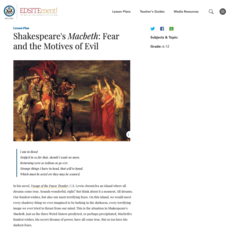


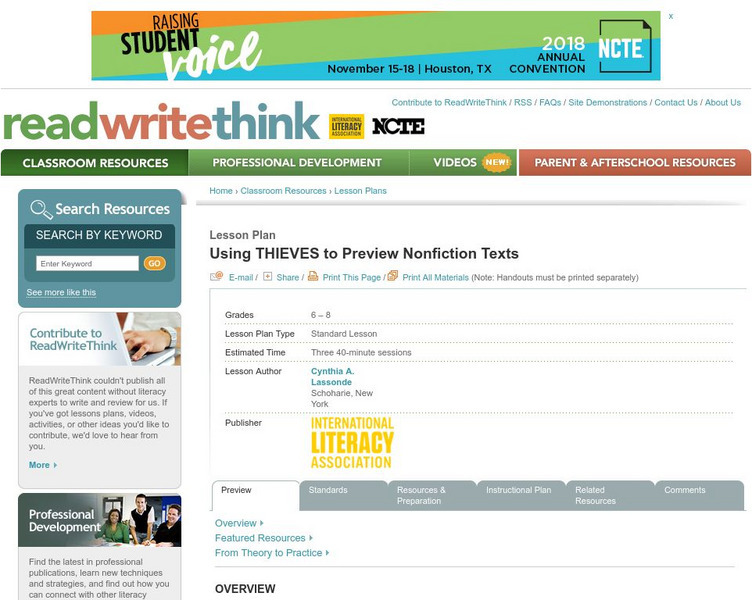
![Peoples Education: Make Inferences in Science [Pdf] eBook Peoples Education: Make Inferences in Science [Pdf] eBook](https://d15y2dacu3jp90.cloudfront.net/images/attachment_defaults/resource/large/FPO-knovation.png)
